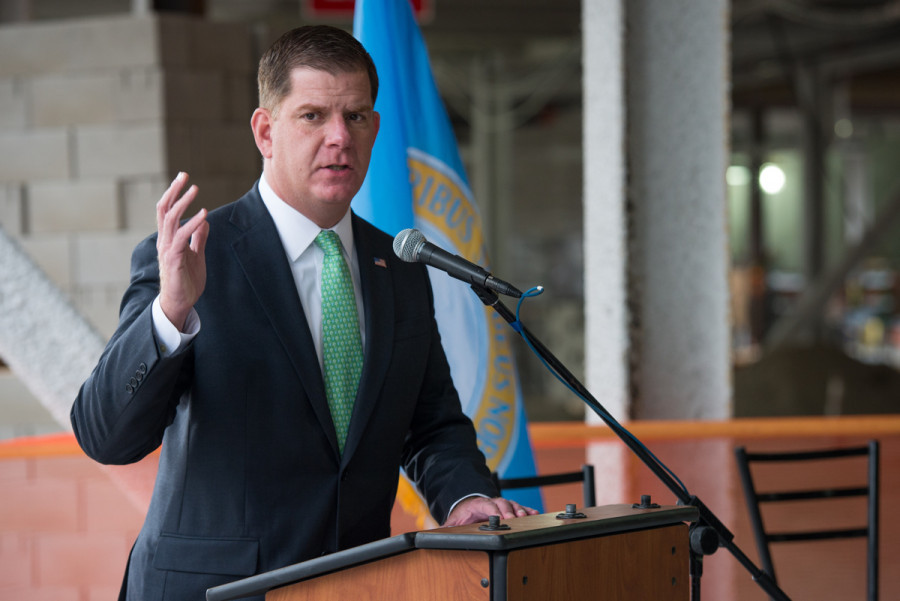Mayor Walsh Has a Plan to Shake Up Airbnb
New rules would charge fees and limit how long units can be rented by the night.

Photo via Mayor’s Office/Jeremiah Robinson
In an move he says will help free up housing in a tight market, Mayor Marty Walsh has a plan that would shake up the way Boston regulates services like Airbnb.
As the state legislature continues to stall on crafting Airbnb rules, Walsh announced Monday that the city would act on its own. An ordinance filed today seeks to collect fees from people who rent rooms on Airbnb and limit the number of days those rooms can be rented out. It would need approval from the City Council to take effect.
“Preserving Boston’s affordability is key to keeping our communities stable and ensuring every person and family who wants to live here can afford to do so,” Walsh said in a statement. “This ordinance is an important step towards our goal of reducing housing costs by creating disincentives to taking units off the market for use as short-term rentals.”
The announcement from the mayor’s office cites a December study from UMass Boston researchers that found Airbnb’s spread in the city had led to a 0.4 percent increase in rents. The rules, Walsh said Monday, are designed to allow Airbnb to flourish “in scenarios that are non-disruptive to our neighborhoods and support our tourism industry.”
He proposes a three-tiered system. Those who rent out a private bedroom in a home in which they live full-time would be charged a fee of $25 each year. Those who rent an entire unit inside their home would be charged $100 a year. And owners of properties in which they don’t live—an increasingly common phenomenon as investors snatch up properties and run them like mini hotels instead of renting to tenants—would be charged $500 annually.
According to the plan, units would also not be allowed to be rented out on Airbnb for more than 90 days in a year. There would be no such limit for those who rent out private rooms in a home in which they also live.
Lawmakers on Beacon Hill have tried but failed to pass statewide regulations on Airbnb properties. Last week, State Sen. Stan Rosenberg chastised lawmakers for not coming to an agreement quickly enough. “It’s not rocket science,” Rosenberg said at a recent Commonwealth panel. Even Airbnb itself supports new statewide regulations and taxes on short-term rentals, Commonwealth reports. Officials believe about 2,000 units of housing in the city are being used for Airbnb, the magazine reported this month. It highlighted a case in Chinatown in which a developer bought an entire four-story apartment building that had housed several families and turned it into a kind of Airbnb hotel.


